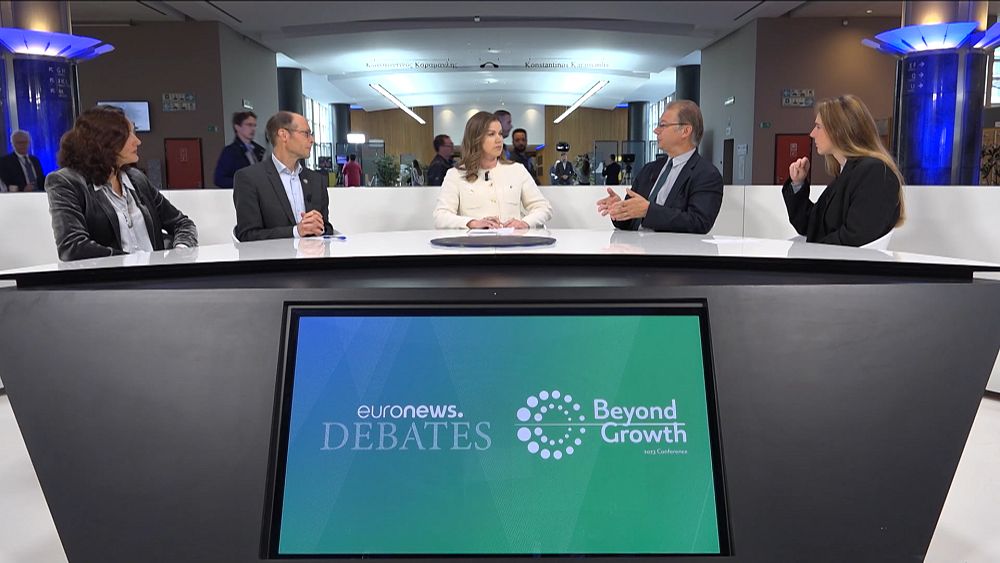Does measuring GDP help or hinder our economic well-being?

Euronews Correspondent Sasha Vakulina and a panel of top policymakers and experts discuss how financial well-being, rising inequality and the cost-of-living crisis might be better tackled outside of standardised GDP outlooks, ahead of the Beyond Growth 2023 Conference.
European leaders reportedly avoided a winter recession in 2022/2023 as forecasts for the first three months of the year lifted the outlook for growth and slightly lowered inflation projections. Economic output rose 0.3% in the first three months of this year.
While calculating gross domestic product over time is the benchmark for measuring economic growth can a country’s financial well-being be accurately evaluated using such simple quarterly percentages?
As the West continues to burn through natural resources in a bid to boost economic growth, European policymakers and experts are asking if economic policy objectives can be achieved in other ways; if we can learn to live within our means and stop focusing on unsustainable growth rates.
Acknowledging that the planet does not have unlimited resources and taking into account the limits of our economic policies is an important step, explained MEP Philippe Lamberts, the Co-President of the Greens-European Free Alliance. “If you want to make room for everyone, you need to start realising that we need to operate within boundaries. Otherwise, humanity will fade away or disappear more brutally” he said.
Olivier De Schutter, the UN Special Rapporteur on Extreme Poverty and Human Rights argued that GDP growth means very little to people in poverty when they do not benefit from such general economic progress.
Increasing poverty aside, as the planet’s population increases, the fight for depleting resources in the face of exponential economic growth continues. Sandrine Dixson-Declève, Co-President of the NGO, the Club of Rome, stressed the need to look at the impact our activities are having on planetary boundaries.
“GDP was never truly a measure of economic development. It measures productivity. It measures an extractive economy. And we’ve seen that that extractive economy has actually created the pandemic that we’ve just recently had, is creating the climate impacts that we have and it’s also exacerbating poverty. Poverty and inequality means instability” she said.
According to Adélaïde Charlier, a climate justice and human rights activist, we need to rethink our targets on a global level, look at crises such as the climate emergency and predominantly recognise that the countries creating the most pollution for the last 50 years or so are not the ones suffering the most from its effects.
“We’re talking about Western countries who have already achieved a certain [level of] well-being. And now in the question of social justice and historical responsibility, we need to question the way and the targets that we want to put on the table” she said.
For more on this debate click on the video above.
Source: Euro News














